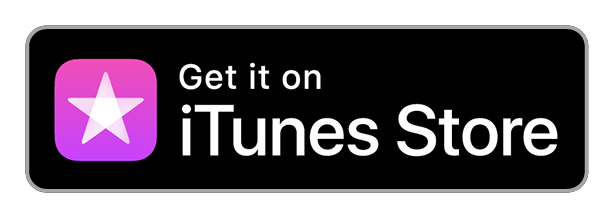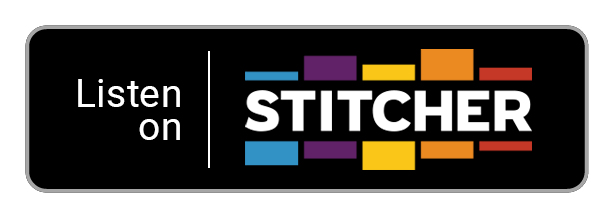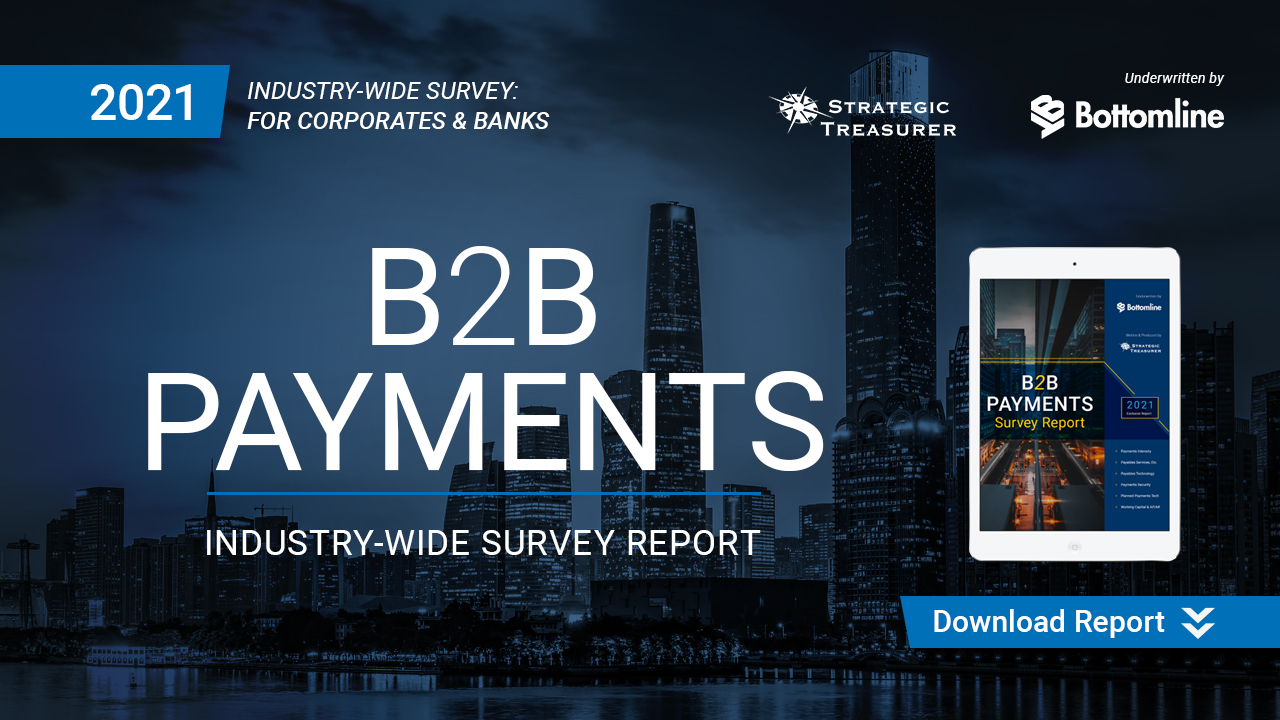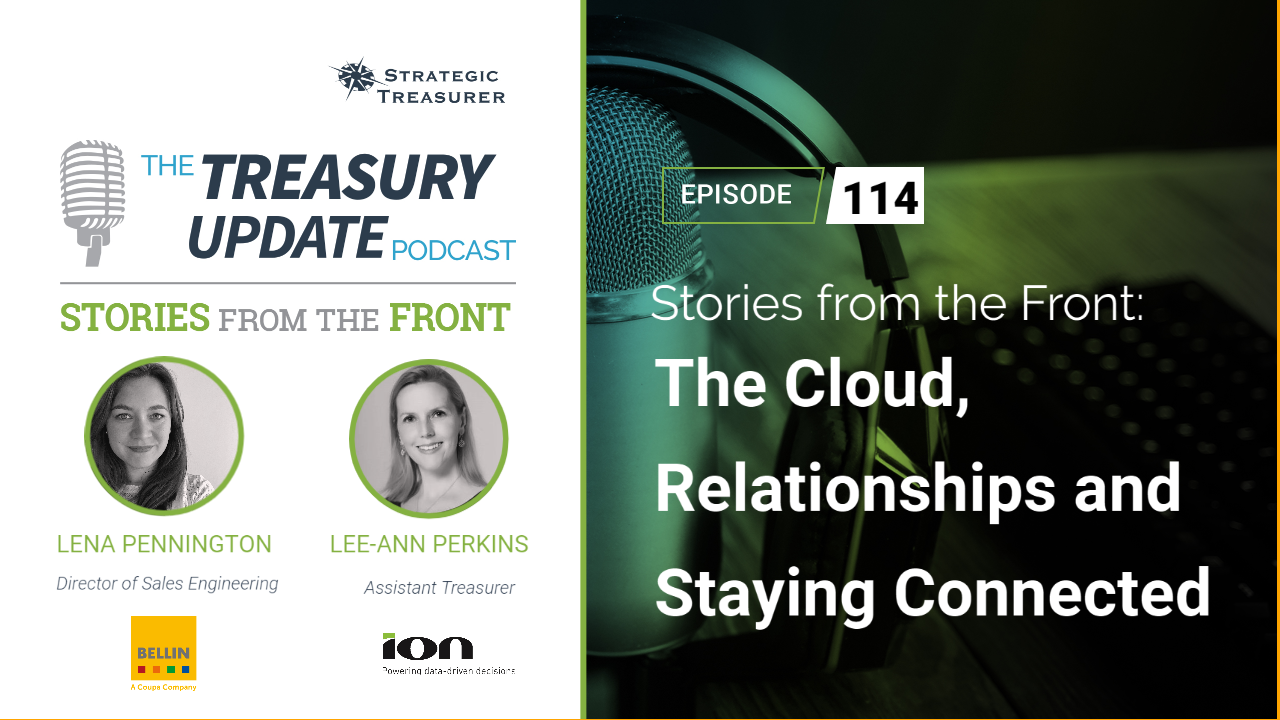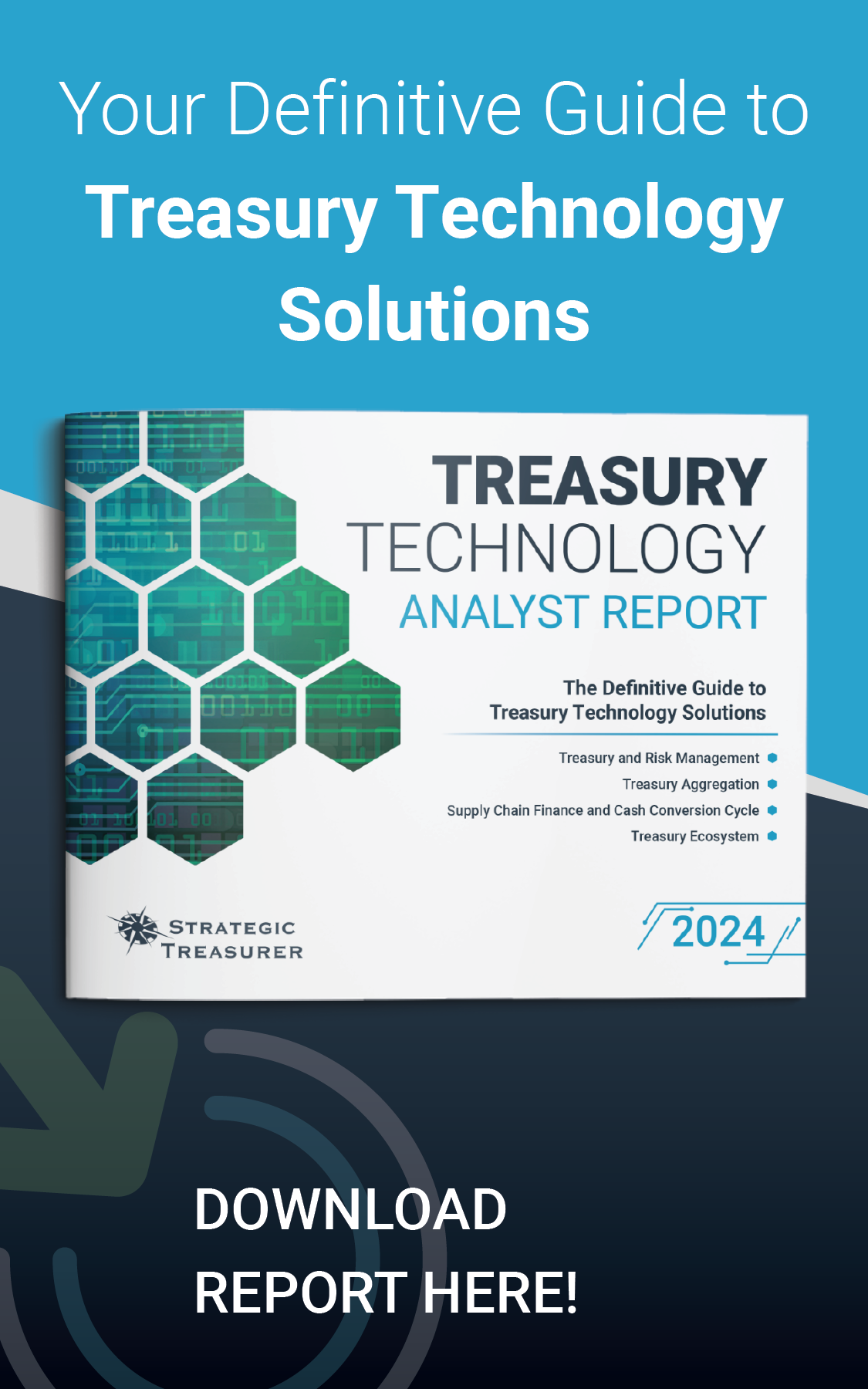
Episode 169
Treasury Mentors & Soft Skills
On this episode of the Treasury Update Podcast, Host Craig Jeffery speaks with Lee-Ann Perkins, Assistant Treasurer of The Passionate Treasurer, on the importance of treasury mentors and soft skills. They share meaningful insights on the necessary elements of mentoring, finding a trusted advisor, becoming a lifelong learner and paying it forward. Tune in to learn how to position yourself and others for career success.
Host:
Craig Jeffery, Strategic Treasurer


Speaker:
Lee-Ann Perkins, The Passionate Treasurer

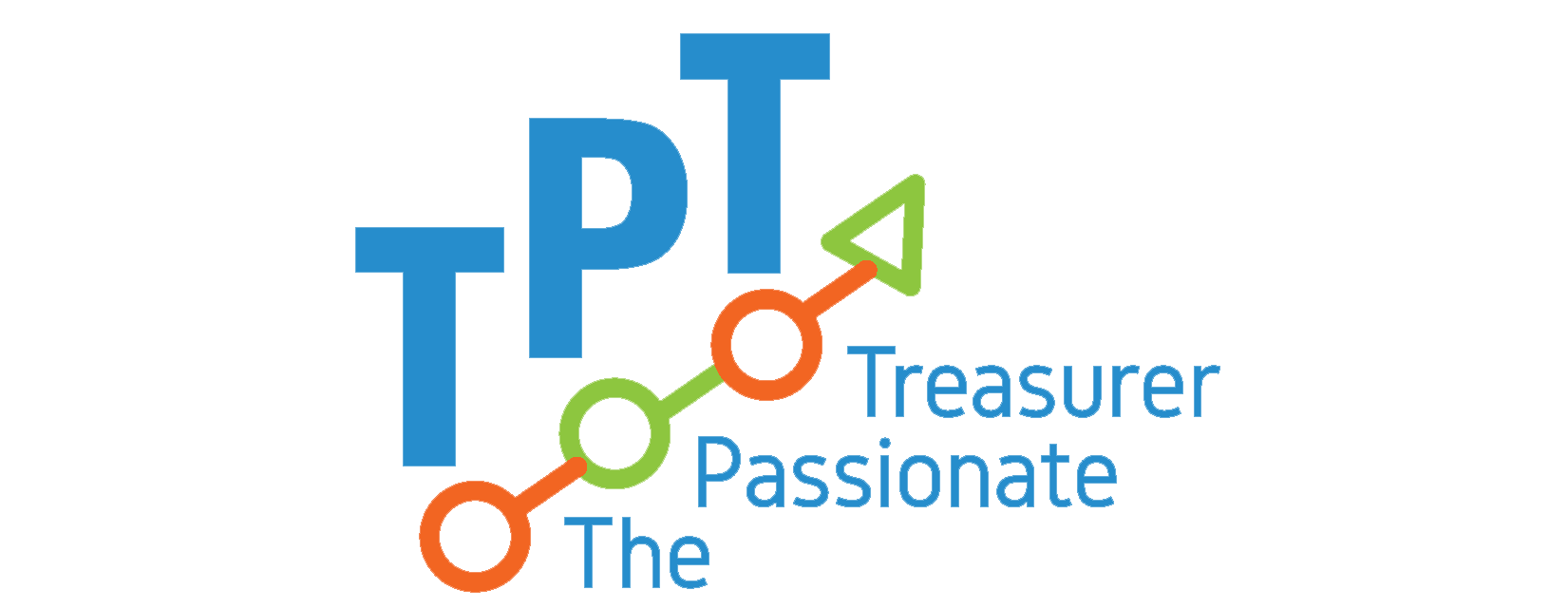
Subscribe to the Treasury Update Podcast on your favorite app!
Episode Transcription - Episode #169: Treasury Mentors and Soft Skills
INTRO 0:00
Welcome to The Treasury Update Podcast presented by Strategic Treasurer, your source for interesting treasury, news, analysis, and insights in your car at the gym, or wherever you decide to tune in. On this episode of the Treasury update podcast host Craig Jefferies speaks with Lee-Ann Perkins on the importance of treasury mentors and soft skills. They share meaningful insights on the necessary elements of mentoring, finding a trusted advisor, becoming a lifelong learner, and paying it forward. Listen in to learn how to position yourself and others for career success in personal growth.
Craig Jeffery 0:47
Lee-Ann, I’m really interested in talking about treasury mentors and soft skills and so I want to welcome you to The Treasury Update podcast again.
Lee-Ann Perkins 0:55
Thank you, Craig. It’s always nice to talk to you, and you know this is a topic that’s so near and dear to my heart and one that I really enjoy talking about, so thanks for making the time today to discuss the topic of mentoring. I hope it inspires others to accept the assignment of being a mentor and also for asking someone to be your mentor as well.
Craig Jeffery 1:18
Yeah, so you know this this certainly follows or falls into the softer skills of management and career development. You know, this idea of coaching and mentoring other treasury professionals or being coached and being mentored is a is an interesting topic. Maybe, we could start with the background on that, what’s the need for mentoring. Why do you need a mentor, then, does everyone need a mentor?
Lee-Ann Perkins 1:42
I think they do. I think it’s good to sort of start off with what really is a mentor and the difference between a mentor and a coach. So, a mentor is a relationship that more often than not develops organically through informal networks you have with connections in your industry. So, the treasury industry. And it’s a professional relationship that usually bridges the gap into the personal relationship or walk as well. So, the idea behind mentoring is really to help build up the mentee’s character and to invest in their overall professional success, and you want to be concerned about the mentee’s goals and as a mentor, you need to be a trusted advisor as well. The important difference between mentoring and coaching is a mentor doesn’t do it for money. This is a volunteer assignment that you do because you’re driven by the satisfaction of helping another pay it forward from really any similar experiences you’ve had in your careers. And more often than not it’s a mutually beneficial relationship. And with coaching, that’s more of a professional assignment where you’re called in, usually by companies, to fix a particular problem and to work on identifying some sort of primary issues. So, an example would be, maximizing an employee’s potential or determining why there’s underperformance in a team. I mean I think to go back to your why the question is, why do you need a mentor, mentoring has been around for a long time, it’s been useful and helpful to many people. But I think it’s become much more pronounced and more discussed in the business world, due to COVID, and the desire for mentoring is increased and that’s what I’ve seen in my network. So, you know a lot of younger employees or really anyone in a spot in their career, is looking for guidance. And the purpose of the mentor is to help you excel in your career, as we spoke about. But, you know, then came COVID, and this sudden void and move of employees, outside of the office to a remote environment. We saw the luxury of informal learning disappear, and really suddenly too, so employees were losing out on this hook. And we didn’t already know how to manage this remote environment when it all started. A lot of people felt lonely they felt isolated in their work and they also I think felt left behind in their careers and their growth. So over time, you know COVID been around for what a year and a half, we’ve come to discover ways to manage this new normal. And I think a large part of that is thriving and meeting on and learning from trusted and experienced employees, and that was just another way to share experiences between workers and I think, you know mentors also benefited in this way because they got to feel valued from their experiences and are also happy to help others through tough times and at the same time, learn from them. So, I think it’s important to have a mentor to help you navigate professional relationships, and to also grow you up in your career.
Craig Jeffery 4:48
You know, you said a couple of things that difference between a mentor and a coach, and I think I use both of those terms, almost interchangeably you provided the break between them. The mentor the relationships develop organically and, perhaps, perhaps intentionally too. Coaching is sounded like that’s intentional, sometimes driven by the organization doing that. Is there, is that right and is there also a difference between coaching is usually for a short period of time or to address a particular issue, whereas mentorship is a more comprehensive view of development and a career perspective. Are those differences as well?
Lee-Ann Perkins 5:30
Yeah, no I absolutely agree, you know, in the sense of coaching, it is usually for a shorter period of time and you’re looking to just fix a particular problem that comes up. And it’s usually something either the company goes out to get or you personally go out to get because you’re lacking in skill, or you need some information. And with mentoring, it’s like you mentioned that organically growing relationship over time. And you usually have come to trust this person already before you ask them to be your mentor so it’s kind of a watch and see relationship over time, but I think they’re both very important and it just depends where in your career you are or what type skills you’re developing. Over my career I’ve engaged with a coach that I paid for, and also a mentor that I had for years. And I think they’re both equally as useful just different skills and different experiences at the time.
Craig Jeffery 6:30
On the mentor side where there’s this, maybe it develops organically, maybe it’s more intentionally sought by one or both parties. Does that typically come from within the organization, within the profession, or are there any elements there of mentoring that that looks different?
Lee-Ann Perkins 6:48
It is best if your mentor is not your boss or someone that you’re closely connected to at work, because in a mentor relationship you’re usually dealing with a lot of honest and difficult conversations. And it’s sometimes can pertain to managing up which would be your boss or managing your team members so if that relationship can be objective and outside of role, your actual company that you’re in, it’s a little easier to be open and honest about those challenges, and you can work through them in a different way. And with the coach is, you know a lot of times C suites or executive hire professional coaches so that they can work on their development and developing their teams underneath them, so their company is involved and it’s, you know, more of a professional relationship in that manner. So, I think, from my point of view, that’s how I’ve seen it develop, and in the mentoring, or in the treasury specific field, you know we have a lot of associations and organizations that provide opportunities for mentorship, and you can either get them through sort of being matched up with a mentor, or you can like I did watch people over time, realize that my values were the same as their values, and I wanted to learn the skills that they had. So, I would approach them over time, so it was more of a relationship over time. I’ve also engaged the mentor who I didn’t know personally before having this relationship with him and that was because I wanted to get a particular skill set from someone who has the same education as I do. And I felt that that would be very beneficial for the time I was going through. And of course, we met up and we, you know, we sort of made sure we gelled, and we had the both the same objectives in mind so I think there’s many ways to mentoring, but it’s just what works with you and with the mentor at the time you need it.
Craig Jeffery 8:47
Appreciate those comments and just thinking as we as we transition to “What are the Necessary Elements of Mentoring”, you started touching on them, but the one question I had is, you know, if you’re talking about someone who’s not, who doesn’t see you as much, you know, let’s say at work, they’re, they’re removed in other areas. How do you balance between, like you said you talked about being honest? It’s easy to present a different front or facade to someone who doesn’t see your weak spots or strengths are underdeveloped areas. They know more about what you, how you present yourself and what you share rather than seen it, so I guess part of that is how do we decide just being honest about it, make sure you’re not covering up your blind spots because you’re only sharing it the way you have a perspective.
Lee-Ann Perkins 9:40
And you know that’s, that is a great question because, from my experience with a mentor who didn’t personally know me before we started our relationship. The first few conversations over zoom, you know, obviously we had our cameras on to give us interaction. First few were pretty goddess, I seem like an amazing person with no problems, but then as you start to actually let them know your intentions are being named for what you’re trying to gain from it. An experienced and a really good mentor will be able to bring out that objective viewpoint where they see why you’re facing these particular problems, or what skill sets you need to develop because of how they see you objectively, and I think there’s two sides to it you know when you know someone well, sometimes you all blinded by them because you don’t think, you know, why would they have any other issues, this is my friend I know them, they’re perfectly fine. And when it’s a complete stranger, they see you differently and they’re looking for areas to try and help you. So, I think, you know, when we talked about earlier the importance of a mentor, it’s also important to seek out somebody who has experience in this area, who knows how to get the most out of you and to draw it out of you, because it does take time if unless you’re the person who just immediately spills your guts and says, these are all my issues, it’s going to take time to draw it out of you, and I think for the mentee, they got to go into that relationship with the right intention. If they genuinely want to grow and they genuinely know they need help and skills development, then I think they’ll be honest with you, why they were facing the problems they are and what other people are perhaps telling them that’s leading them to trying to get this relationship going.
Craig Jeffery 11:28
Why do you need a mentor, why do you want to be a mentor, what’s the value in it? Tell me if this is part of that one and expand or just what I’m saying if it’s if it’s not right. To be mentored, you’re looking for someone who can coach you, say hard things that you know is outside let’s say the chain of command so they can be brutal, but it might not hurt as much because you’re not being evaluated for the position so it’s another set of ways to improve individually. And why would you want to be a mentor because that takes time. You know, in addition to just saying I want to help the profession, help people that some of the altruistic aspects. The other side of the coin of altruism might be if you’re helping to guide someone, you’re able to maybe be blunt, figure out ways to help people that should make you a better leader, coworker, you know, finding ways and seeing how you can help others so there’s this other way of I can be a better manager/leader. If I’m coaching others. I’ll learn some things that it’s too hard to learn or some it’s harder to learn when it’s with direct reports or peers. Is that part of it too?
Lee-Ann Perkins 12:48
That is because, it’s like you said, you know, there’s the altruistic side when you do it because you, you want to help your profession, but on the other side you know people go into mentoring a lot of the times, to gain skills themselves. So, you know you gain great leadership experiences, and maybe you don’t get those experiences necessarily at work, maybe you are only an informal leader at work. So, this is a way to help you grow your own leadership skills. And I think one of the most important things is it also teaches you the valuable skill and art of delivering feedback, because that’s not always easy. That’s not always something you’re taught in work other than a quick HR course on, you know, we’re doing our goals is to make sure when you tell people, you know how they performed over the years you use these words et cetera. So, this is a great way to, to give feedback to also ask questions and to become a good listener, because that’s one of the skills I think many of us, you know I can speak for myself, don’t listen as well as we should. So, this is one way outside of your job to train yourself also to become a good listener, because when you’re listening to other people and you’re really trying to help them, you’re asking good questions and you’re engaged in the conversation as well. And on the other side of it too is you also get to gain new network so, oftentimes, the main tool has come from a different background was on a different level or maybe even a different age where they don’t necessarily have the same network. So I found in my experience, it has been so great to, to learn from others in, you know, maybe even a different age bracket who have a different set of networks and a different set of experiences and I can learn from them, and what they bring to the table as well so it’s not just the fact that you’re giving back, but you’re also getting something for yourself as well.
Craig Jeffery 14:41
Yeah, the gaining new networks is pretty interesting, you know, as we talked about what are the necessary elements of mentoring, you’ve already covered the “Why do you need a Mentor?” there’s a tremendous amount of value there from giving back to learning and giving and getting feedback. But a couple questions. So how do you get one, how do you get a mentor, or how do you become a mentor, and the time and commitment. What does this look like? What’s the investment?
Lee-Ann Perkins 15:08
So, how do you get a mentor you know a good starting point, I think, is to always identify, you know, what do you want out of the relationship and what are you trying to grow yourself. So, when you understand why you’re getting into it, then you can start to identify someone in your network, who you think has those skills, and who can help guide you with really what you’re trying to achieve. So, one way to do it is to, you know, approach the network you in. In our treasury field we, we have a big network we interact with a lot of people, and our jobs and externally as well. So, observe people, you know, find, find people who you agree with who you want to emulate, and then you want to build a relationship you can ask him for help. And then you can also use different resources that are available. So, my main tool I currently have, I was matched with through a professional association at Treasury in the UK, and, you know, we sort of had to put our preferences in what we were trying to get out of it into this program. And then it gave me a listing of people I could contact, so that that’s one way to do it. And then I also think you could ask your trusted advisors around you so even if that is your boss or someone at work, someone in your family, you know, asked about who do you think would help me, this be able to work through these issues or gain these skills. And I think more often than not, at least in my experiences and maybe it’s because I only know nice people, but people are so willing to help and they’re so willing to give on their experiences to help you succeed in your career. And then, you know, as you mentioned about the time commitment, this is something that has to be established upfront, when you ask someone to join this relationship with you because it is genuinely a lot of work, If you’re going to do it properly and you’re going to really try to get the most out of it, you should establish the timeframe upfront. How often can you meet, what method are you going to meet over Are you going to meet up for coffee, are you going to do it over zoom, you know, it has to be relational so it’s not good over email, but you really have to establish this upfront and then how realistic is the timetable if you’re asking someone who is a CEO of a Fortune 10 company, they probably don’t have the time to help you, but just be honest upfront with this is what you need, this is the time commitment, and then discuss that with the person you’re asking to become your main tool. And then, you know, if this is mutually beneficial for you both can benefit from it, that what you put in is what you’re going to get out. So, if you, if you treat it like it’s just a temporary assignment then you’re probably not going to get the most out of it, but if you treat it as something that’s really something you want to build on and grow over years and you need to establish that time commitment. And I remember someone in my network had asked the person who had just given birth to twins, and she had a baby at home, to be their mentor and, you know, it was just, it just went to show that you have to be realistic and you have to understand the other person’s point of view as well you know someone with three babies at home doesn’t have necessarily the time to commit. So, you know you don’t want to be disappointed either so establish that upfront and then you can build on the relationship over time, but just know it does take a lot of time and commitment.
Craig Jeffery 18:37
Let mee a little more precise and the question there, that it takes a lot but, you know, is this something where the…what’s the range of how frequently you made and how long is it for Is it every other week, monthly, quarterly? What are the some of the ranges that someone who’s new to mentoring would be looking at?
Lee-Ann Perkins 19:00
Yeah, good question. I also think it depends on what you, you know, personally can commit up to you but for me it was once a month, where we have a set timetable of when we’re going to meet, we’re in different countries so it’s easier to say 7am for me, works perfectly on a Thursday, once a month. So, when it’s safe and scheduled in your calendar, then you know you tend not to miss those meetings because they’re already planned, and it also gives both me and my mentor time to prepare our questions, for me mostly to do the homework that’s been assigned, and for me to work on some of those skill developments or areas that we’ve discussed in our previous meeting. So I would say that you probably don’t want to do it less than once a month, and especially upfront as we’re building that relationship, as you’re working through things and you know you should have some goals set up of what you’re trying to accomplish and realistically how long are these going to take you, so I would say you know to a new mentor just not less than once a month and we’ll meet for an hour at a time.
Craig Jeffery 20:05
Yeah, that seems quite manageable in most environments right here. Look at 12 hours a year plus transport time if you’re, you’re physically meeting for some type of caffeinated drink. You know, when you look for a mentor, this is this is a soft skill question, and this is something that I’m not sitting on the couch, asking you to counsel me on this but, but some of this, you know, one of the things I, you know, I’ve seen is, you know, like if you’re giving feedback to staff, there’s some people that the slightest non supportive, or less than supportive or encouragement to one person may be viewed as very harsh and they want to correct their behavior and adjust very radically and others, an extremely direct approach is necessary to get their attention and they almost don’t get it unless you’re saying, you will be terminated if you don’t do this. And, and so there’s very different recipients there. And I’m thinking this on the mentor side. Do you also look at, you know, who is similar to me, and style or approach or whatever, who’s different? And is that, you know someone who may be more of a global thinker versus a linear process or an in person, someone who’s more extroverted or more introverted is that different than I am? You know, and you can go on through some of the processes. So, is it better to have someone who’s different so you can see other sides or someone that’s the same who might be able to help you adapt from a position of understanding?
Lee-Ann Perkins 21:50
It’s a bit of both. You know I’ve had many different mentors over my career, male and female, much older than me and much younger than me, and I think if I looked at all of them, they all had completely different personalities to me. And when I first went out to get my mentors, I probably didn’t think this is what I’m going to do I’m going to get someone who’s different to me. I went out to look for someone who could help me with my weaknesses, and more often than not because I’m more introverted, I look into people who are at least the way they displayed themselves to me, they’re very confident. They don’t have any trouble speaking up. They are able to speak off the cuff, they just do things that come naturally to them that don’t to me. And I think that’s why I gravitate towards very extroverted people because I want to hold myself up on the confidence level, and I want to be like them and those types of situations. And if I were to only meet with people who are exactly like me, I don’t think I would gain much traction because they you know they wouldn’t really be a blind spot that, that then notice in me because we’re the same type of person. And my coach was like that too, complete opposite personality to me so it may not have been a at the time to do that but I think over time it’s led me to the same type of people as long as they have the same values as I do, then I think the personality is, I’m driving that way because I want to learn something and gain experience in areas that they have for me. And it’s probably different for everybody and how they react how they take feedback and how they learn as well. And I think you just have to figure that out for yourself. And I think also in the mentor relationship if over time, you discover that, you know this is not working for you and your, your personalities aren’t on the same or you’re not getting what you need out of it, then it’s also time to maybe move on and choose somebody else.
Craig Jeffery 24:00
So, now you’re an event mentor, you have a mentor relationship you’re mentoring or you’re, you’re being mentored. Have you evaluated the relationship from either side, and then I want to talk about the learning aspect of that too because I think that’s part of the evaluation, but how do you evaluate, let’s say a mentor?
Lee-Ann Perkins 24:20
So, for me, the first thing I always do is to make sure we have the same value set, is it somebody that’s unwavering on their ethics is that someone who’s, you know, displays good judgment, who’s very wise, and who just has a tenacious attitude. And so those are all the things that draw me to a person who I need to help you want to take advice and help from. And then the first thing you know I did and I did this, maybe a year ago and I think you know me by now I often think, left of center and current problems a little differently to most people but I was thinking, a while back about SWOT analysis I was doing my, my dissertation and I was having to do a SWOT analysis on a company, you know, trying to define the competitive advantage of that company and I go to myself you know as professionals, this is exactly what we’re trying to do. We’re trying to define our own competitive advantage, whether it’s in a job interview, in our current positions when you’re writing your resume, or even, you know you’re doing your annual review. So, I started doing a SWOT analysis on myself. And then when I had done that, and I identified all my strengths, weaknesses, opportunities, and threats. I then looked at my mentors and people that I look up to in my life, and I sort of evaluated how do my attributes, parallel to what I see in them, because I want to leverage their great attributes that they have to try and improve my own. So, for example, you know, on the strength side, I looked and I, I looked at my mentor and I thought, do we have similar strengths, and those strengths that were some of them were matched up. Those are affirmed, the strengths I had so that made me really happy. And then I looked at the areas, the weaknesses, my weaknesses, and these are areas for change. So, when I look at my mentor and I see she does not display those same weaknesses, then I know these are areas and habits that I either need to stop or to reduce to help reduce my own weaknesses. So, it kind of highlights, to me, you know a little bit more of the areas I needed to work on. And then on the opportunity side, I looked at this as areas for guidance and development. So does my mentor, you know, has she followed an education track I’ve wanted to get into? Has she taken some speaking courses or volunteered as a mentor or pursued different avenues to me and the things that identified those are the ones that I want to use those opportunities to help me in my own career? And then the threats I think was the one that was the most important and most and highlighted to me, my blind spots. And this was, you know, an area of self-reflection. This one took a long time to get through but it’s the idea of identifying, you know those areas of self-sabotage. And it’s, for me, it’s the way I don’t have a lot of confidence, way I sometimes suffer from imposter syndrome. And you know, that can derail even the most experienced person, but my mentor sees me from a different perspective, and she helps grow my confidence and build my skills so I can make these threats less evident and eliminate them over time. So, that’s what I did and I, you know, to sum it up, mentors are there to find ways to stimulate our personal and professional growth. And while I was doing the SWOT analysis on myself out, I found this quote from a famous movie director, and I think this just says it all. So, the quote is “the delicate balance of mentoring someone is not creating them on your own image but giving them the opportunity to create themselves.” So, by doing a SWOT analysis, you’re not trying to be a copy paste of your mentor, this is just a great way to take all the learnings of someone you admire and work them into developing and growing yourself.
Craig Jeffery 28:26
There’s a lot of good comments in there and the self SWOT analysis is quite interesting. Your phrase self-sabotage I think is, is a good one. Where, where are you tripping yourself up and does this allow you to see it, whether from the mentor through this self SWOT analysis. You’ve already shared a few of the things that you’ve learned, like so what have you learned through being mentored and being a mentor, you talked about some blind spots, etc., are there any examples that you want to share of this is what mentor mentoring or being mentored did for me.
Lee-Ann Perkins 29:04
So, I have two so, most recently, one of the best learning lessons I had with my mentor was evaluating career decisions and job offers. I’ve just recently changed positions and I had a couple of job offers come my way and it was so interesting and so helpful to discuss these with my mentor. She’s been in my shoes before she asked questions that I hadn’t even thought of when considering these job offers. She also helped me review my resume and polish up some areas. She helped me review my LinkedIn profile and kind of color some areas of that too. So, these are all, an area that I really hadn’t thought of, that mentors can help you with, until we actually went through this together, so it was almost like, you know, really great career advice on a different level than I had expected so it was very helpful, and she ultimately, you know, helped me make a really great decision in my career. And then the other one was, you know I mentioned earlier about imposter syndrome and confidence, you know, a while back, someone once say to me that when you’re suffering from being unconfident and you’re suffering from maybe comparing yourself to others. You really got to stop, and you’ve got to remember why you particularly were hired, you know, you were hired for your own attributes to bring, your skill set, and your personality too, and what you bring to the table so you don’t need to be your boss, you don’t need to be somebody else who’s on the team, you just need to be yourself. You need to work hard, you need to work on those areas of development, sure, and use the time to learn something from everyone. Don’t compare yourself to other people but build up your own confidence and bring to your company what they pay you for. And I thought this was just a such a great learning lesson for me because, you know, I just feel like I should be that person that refreshes others at work you know I shouldn’t be a person who is not confident enough to do my job, so it was a great lesson and I’ve never forgotten that from her and sometimes when I you know I struggle I stopped to remember that I have a sticky note written on my computer of those things and it just helps me in times where I just need a little boost.
Craig Jeffery 31:31
Yeah, thanks for sharing those. You know you talked earlier about, I don’t know if you use the term, honest conversations or, or you’re getting the kind of feedback, whether it’s viewed as a kick in the backside or not, but how do you how do you listen, or take the feedback or understand what’s wise counsel and what may be something that you’re not going to follow but primarily, how do you take the wise counsel and advice that, that you get from a mentor and then maybe conversely how do you give that.
Lee-Ann Perkins 32:08
I think it’s something that you develop over time it’s not easy always to take feedback, you know, we, we often don’t see outlines, but I think you got to come to this relationship with the fact that you are recognizing the good intentions of the person giving the feedback. So, you know a good mentor is one who takes the time to lift you up to bounce you back after you were knocked down and to help you navigate. So, when they give you constructive criticism or any feedback you want to take it for the good intentions that they’re offering is with. It’s also important, and this, this can be at work too when you get feedback from people as if you maybe don’t necessarily agree with it or you need time to think about it, you should also talk to more than one person about it so you can triangulate the information and see if maybe, you know, it is actually true, and maybe you do have these blind spots. So, it’s important to, you know, also evaluate the information you’re given don’t just take everything blindly and accepted it, but if it’s something you really feel you need to discuss further talk to some more people about and then just try to really get a good impression of areas you maybe need to work on it but if it’s constructive feedback. And then I think also, you know when you trust someone who you’re working with, and you’ve gained their respect, then, you know, it might be a good idea to take a wise counsel and they have your best intentions at heart. Giving feedback to in itself can be difficult. But what I’ve learned over the 17 years of working is that if you, if you don’t give feedback quickly, and you’re not honest about it’s going to be much more difficult, so you might as well just take the bull by the horns and do it when it happens, and being honest about whatever the problem is or whatever needs to change, is really the best way to deal with feedback.
Craig Jeffery 34:14
Just as to close, what are your final thoughts or any closing remarks on this topic of mentoring.
Lee-Ann Perkins 34:24
I mean, I just think it’s really important to go for this mentoring and mentee your relationship, I think it’s provided so much value to me and to many people in the treasury profession and you know I just recently had the most exciting experience with mentoring when I had met somebody recently who’s an engineer by trade and by education and by experience. And he got into the finance era and decided that treasury was just what he wanted to do for the rest of his life, and so we got connected and we started talking about what treasury is, you know, how do you become successful in treasury, and what sort of skills and attributes you need to get into treasury. So, I invited him into my networks, and we communicate, and we built relationships and just recently at the end of last year he called me and said he got a job in treasury, and it was the most fulfilling and exciting day. I honestly felt I’d won the job I was so happy for him there’s someone who had developed outside of his other formal education this passion for treasury and he just wanted to get into it and he used all his time and energy to research the profession, research the network, took my advice and, you know, he got this job that he now just loves and it can be so rewarding. It was just a wonderful experience. So, I think, you know, some advice for mentors, if you can live sacrificially, with your time, your energy and your wisdom, and you can help others as they strive forward in their career, it was just such a wonderful feeling. I really hope that everyone finds a mentor in life and just also remember that nothing has to be done alone. Be the link in the chain of people you admire and trust.
OUTRO 36:16
You’ve reached the end of another episode of The Treasury Update podcast. Be sure to follow Strategic Treasurer on LinkedIn, just search for Strategic Treasurer. This podcast is provided for informational purposes only, and statements made by Strategic Treasurer LLC on this podcast, are not intended as legal, business, consulting, or tax advice. For more information, visit and bookmark strategictreasurer.com.
Related Resources
2021 B2B Payments Survey Report – New Release
This study provides valuable insights related to the overall payments complexity and challenges being experienced by practitioners within the treasury and finance environment, and also sheds light on the unique solutions and tactics employed by organizations to optimize payment processes and maximize efficiency.
The Cloud, Relationships and Staying Connected
Host Craig Jeffery joins Lena Pennington, Director of Sales Engineering at BELLIN, and Lee-Ann Perkins, Assistant Treasurer at ION Geophysical, to discuss effective strategies around working from home, relationship management, liquidity planning, technology solutions and more.


